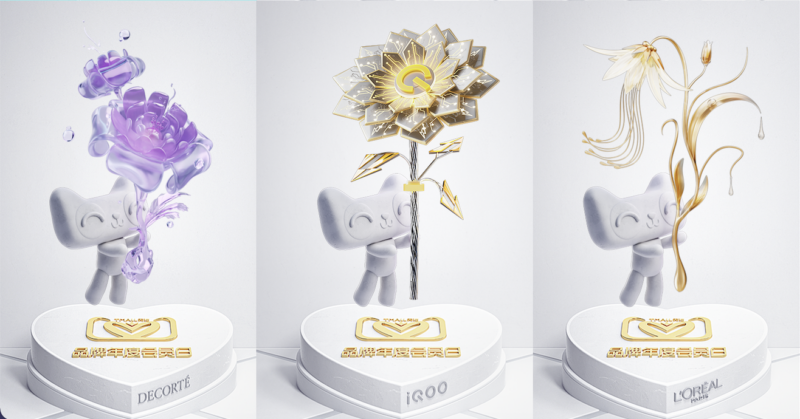The popular lifestyle sharing app, Xiaohongshu, is best known as a social commerce platform where users discover new products and make purchase decisions by scrolling through the app’s wealth of shopping-related content. Xiaohongshu has now released its Research Report on Consumer Psychology in the Post-pandemic Era” in partnership with NielsenIQ. Analysing user feedback on the platform, the report listed 4 major trends emerging from the data that shed light on the values and motivations behind consumer behaviour in 2023.
Emotional value drives purchase choices
“Performance-to-price ratio” has been by the byword for young Chinese consumers as the economic shockwaves of the pandemic tightened purse strings. Despite this, the report found that 62% of users feel their willingness to spend has increased since 2021. Whilst consumers care about saving money, they perceive emotional value as worth the extra spending – emotional value was ranked second in the top 5 decisive factors for purchasing a product, with first place taken by “product quality”.
The focus on emotional value also reflects a changing understanding of consumption among younger Chinese consumers, many of whom feel that good purchases are an investment in their quality of life and long-term happiness. As a result, products with high emotional value are more likely to be seen as fulfilling the all-important criterion of high “performance to price ratio”.
Mental health, travel, and exercise are top priorities
Going out into the world – whether to enjoy delicious food or visit new places – is something that consumers certainly derive emotional value from. As a result of the social depletion experienced by many people long after COVID restrictions ended, social commerce users are keen to spend money on experiences that connect them to the outside world and to other people.
Food, travel, exercise, mental health, and makeup are the top 5 consumption areas users think will improve their quality of life, whereas home renovation and daily use items ranked in the bottom 5. All top 5 categories saw increases compared to 2021, but travel saw the biggest jump at 4%, showing how users are keen to have experiences outside their bubbles.
This trend is no surprise – after years confined to largely to one’s home or local area, the appetite for novelty is more ravenous now than ever before. At the same time, Chinese urbanites have a rapidly growing awareness of mental health. In this context, travel is increasingly a form of self-care and cultural enrichment, rather than a class signifier and form of conspicuous consumption.
“Seeding” thrives
“Seeding”, or peer-to-peer recommendation, is the mainstay of e-commerce in China. Data from Xiaohongshu’s post-pandemic report points to the continuation of this trend. 60% of users trust the experience of other ordinary consumers and 59% said they are willing to share their own experiences for others’ benefit, up 12% from 2021.
As the platform steps up its support of livestreaming, this sense of community will be critical to the continued relevance of the platform in the zeitgeist. Previously, peer-to-peer recommendation was practiced on the platform through “notes”, in which users posted videos or images detailing their thoughts on the product and where to find discounts. As livestreaming takes over, seeding will become even more interactive and detail oriented.
Consumers act as “experts”
As observed by Accenture in their 2022 Chinese consumers insights report, “Chinese consumers have developed global, multidimensional perspectives, shifting their focus from instant gratification to long-term happiness and value”. Xiaohongshu’s report provided further evidence for this, showing how users carefully weigh up multiple dimensions of a product’s benefits.
The group of users who agree that “functionality and value are more important than trendiness” grew significantly, jumping from 17% in 2021 to 29% in 2023. The increase brings this group head-to-head with those whose main consumption ethos is “quality is more important than brand name”. However, both groups are overshadowed by the camp who believe functionality is the only factor worth considering, who comprise 39%. This more complex picture of what motivates purchasing decisions on the app aligns with now well-recognised fact that Chinese consumers have become more sophisticated and varied.









